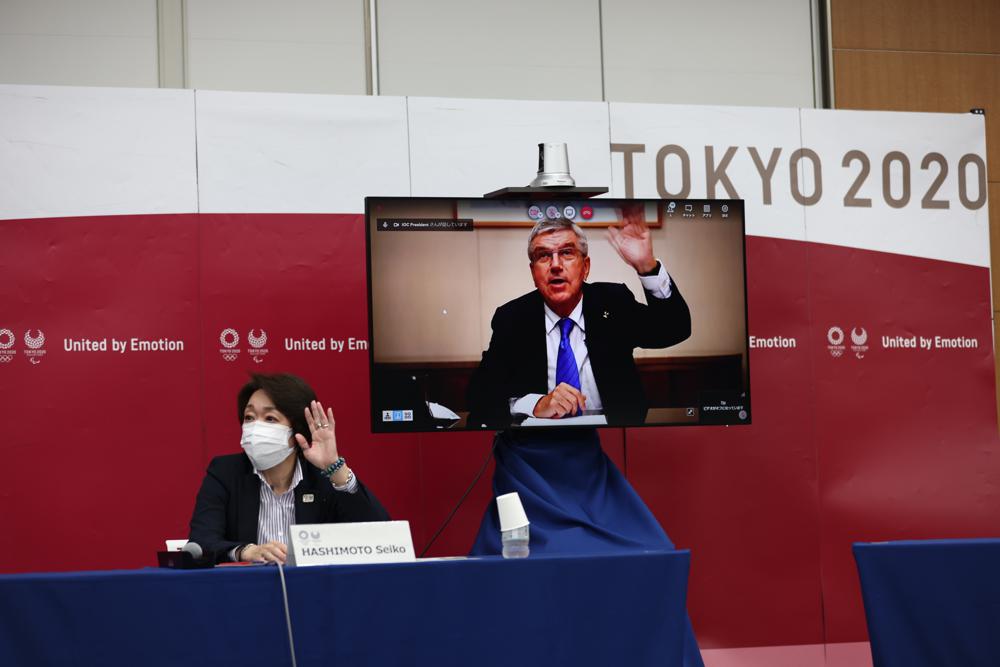

Fans will be banned from Tokyo-area stadiums and arenas when the Olympics begin in two weeks, the city’s governor said Thursday after meeting with organizers of the pandemic-postponed games.
That means the Olympics will be a largely TV-only event, after the Japanese government put the capital under a COVID-19 state of emergency because of rising new infections and the highly contagious delta variant.
The declaration was made by Prime Minister Yoshihide Suga, and the spectator ban was agreed to by Japanese Olympic organisers, the International Olympic Committee, the International Paralympic Committee, and the metropolitan government of Tokyo.
It was a serious blow for Japanese taxpayers and local organisers of the games, which already had been postponed from 2020 by the coronavirus. Hundreds of millions of dollars in ticket revenue will be lost, and that must be made up by the government. Fans also have endured months of uncertainty about whether the Olympics will go ahead.
“Many people were looking forward to watching the games at the venues, but I would like everyone to fully enjoy watching the games on TV at home,” Tokyo Gov. Yuriko Koike said after the meeting. “It’s gut-wrenching because many people looked forward to watching at the venues.”
Fans from abroad were banned months ago, and the new measures will mean no spectators in stadiums and arenas around Tokyo both indoor and outdoor venues.
The ban covers Tokyo and three surrounding prefectures — Kanagawa, Saitama and Chiba. A smattering of events in outlying areas, like baseball in the northeastern prefecture of Fukushima, will allow a limited number of fans.
The state of emergency begins July 12 and runs through Aug. 22. The Olympics, which open July 23 and run through Aug. 8, fall entirely under the emergency period, while the Paralympics open Aug. 24.
“Taking into consideration the impact of the delta strain, and in order to prevent the resurgence of infections from spreading across the country, we need to step up virus prevention measures,” Suga said.
In principle, the July 23 opening ceremony at the new $1.4 billion National Stadium will be without paying fans, although some dignitaries, sponsors, IOC officials and others will be allowed to attend.
“We will have to review the situation about the dignitaries and stakeholders,” organising committee President Seiko Hashimoto said of the opening ceremony.
“No fans was a very difficult decision,” she added.
Hashimoto acknowledged some regrets, particularly about the decision coming so late.
“We had no choice but to arrive at the no-spectator decision,” she said. “We postponed and postponed, one after another. I have done some soul-searching about that.”
The emergency declaration made for a rude arrival for IOC President Thomas Bach, who landed Thursday in Tokyo for the games. He attended the virtual meeting on fans from his five-star hotel for IOC officials where he was self-isolating for three days.
“What can I say? Finally we are here,” Bach said, sounding upbeat as he opened the late night meeting that ended close to midnight. “I have been longing for this day for more than one year.”
Toshiro Muto, the CEO of the organizing committee, said many sponsors, federation officials and others would be considered to be “organisers” and thus would be allowed to attend venues. He said some might occupy public seating, but he said he did not know “the numerical details.”
Organizers had expected to generate about $800 million in ticket sales. Any shortfall — and it could be almost the entire amount will have to be made up by Japanese government entities.
Japan is officially spending $15.4 billion on the Olympics, and several government audits say it’s much larger. All but $6.7 billion is public money.
Two weeks ago, organizers and the IOC allowed venues to be filled to 50% of capacity, with crowds not to exceed 10,000. The state of emergency forced the late turnaround, which was always an option if infections got worse.
On Thursday, Tokyo reported 896 new cases, up from 673 a week earlier. It’s the 19th straight day that cases have topped the mark set seven days prior. New cases on Wednesday hit 920, the highest total since 1,010 were reported on May 13.
The main focus of the emergency is a request for bars, restaurants and karaoke parlors serving alcohol to close. A ban on serving alcohol is a key step to tone down Olympics-related festivities and keep people from drinking and partying. Tokyo residents are expected to face requests to stay home and watch the games on TV.